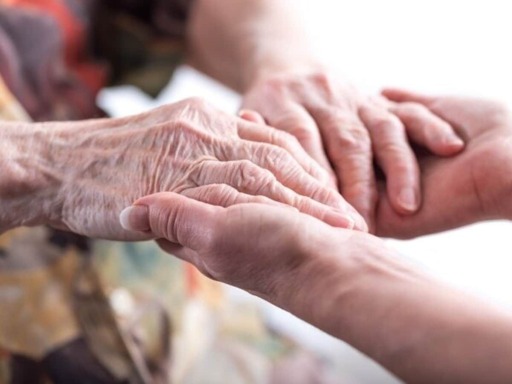In May 1989, I sustained serious spinal cord injuries in a suicide attempt. When I was finally discharged, I went home to my mum, dad and brother. But soon my brother left home to go to university. Then, just after celebrating his birthday, my dad died suddenly, at the age of 50. That left just my mum and me at home. In those years following the death of my dad, my mum and I developed a deep connection. Not only that, but in terms of my care, my mum was a carer – providing both personal and practical care and was on hand if there was an emergency.
But it wasn’t just emergencies. I’m now in my 50’s and my mum is in her 80’s, and although I now have a care team that means she no longer needed to provide personal care, she still provided back-up, practical care when it was needed.
But then my mum had a nasty fall, breaking a bone in her back. With her providing so much care to me, I wanted to return that, but I felt powerless, unable to help.
Disabled people left powerless when their carers need support
My carers didn’t have enough time to take me over to my mum’s house, and her home was only partially accessible.
I was extremely grateful there were people close to my mum who could help her but frustrated my disabilities (and care team) were preventing me from helping her.
I already knew there was a strong feeling of guilt that comes with both needing the additional support from family members when they are getting older, and from the knowledge you might not be able to return that care.
I was sure others would be in this situation, so I wondered how they approached these challenges, when family members have been helping but are now needing care themselves. Katty and Lynda got in touch about their experiences.
For Katty, this inability to care for her father was something she worried about while being blue-lighted for emergency spinal surgery. She had only recently lost her mum to lung cancer and now her dad was diagnosed with lung cancer too.
Who will help?
As the main carer for her dad, Katty was worried about him. Would he take his meds on time? Would he be able to cope?
She was so concerned that even though she was in the back of an ambulance she began posting on Facebook looking for someone – anyone – who would be able to look after him while she was in hospital for surgery.
Katty felt guilty she couldn’t be there with her dad. She said:
Losing both my parents to lung cancer within fourteen months of each other was incredibly hard. My dad was diagnosed with lung cancer a week before my mum passed.
It wasn’t long after sorting and attending my mum’s funeral, I was sent in to have the emergency spinal surgery and physically, I couldn’t be there for him in the way I wanted to be. Even though I knew it wasn’t my fault, the guilt still hit me badly.
Lynda had also been trying to find care too. She had been fighting social services for three long years to provide carers for her mum, who lives with Alzheimer’s.
But it was only when her mother was diagnosed with terminal liver cancer that social services finally relented and in the last week of her mum’s life, they paid for carers.
Lynda said:
It was a stressful and exhausting time. Between myself, my partner, my brother and my housekeeper, we managed to deliver care to my mum.
The emotional and mental stress from the whole experience has been overwhelming and traumatic… I couldn’t get up to hug her and stroke her head. I wanted to provide personal care for my mum but all I could do was sit and watch whilst everyone else did the duties.
The special relationship we develop with family members who care for us when we are injured, and the guilt that comes when we can’t return that care personally, is something many people with disabilities experience.
As Katty says:
That scar of helplessness and grief has never gone away.
A gaping hole in the social care system
If we had care in place that was sufficient, then we would be able to help more in the care for these family members. But all too often the care we have ourselves is not substantial enough, leaving us feeling guilty about our inability to help.
This exposes key problems within the social care system for carers and disabled people.
Lynda, who has been fighting for thirteen years to get proper carer established for her own needs said:
There is no longer any life support for those who need care – and the disabled, vulnerable and elderly have no option but to care for each other because there is no care system out there that is available or safe.
I asked the Spinal Injuries Association about the difficulties with receiving and then going on to provide care. They say:
At Spinal Injuries Association we all too often witness how the lack of appropriate and specialist care is having a devastating impact on the 105,000 people living with spinal cord injury in the UK. The harmful effects on their mental and physical health, and how that impacts the people around them is hugely concerning and dangerous.
Lynda and Katty’s stories are unfortunately not unique, and as a charity we hear from people who are concerned, not only about their own wellbeing, but about their loved ones as well.
There is a desperate need for trained specialist carers who can support those living with spinal cord injury to live safely and lead fulfilled lives, and to go on to care for their loved ones.
Featured image via the Canary
By Ruth Hunt
From Canary via this RSS feed


